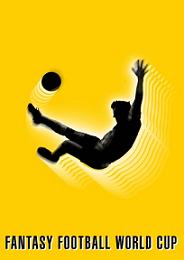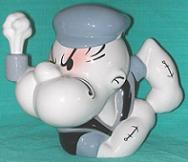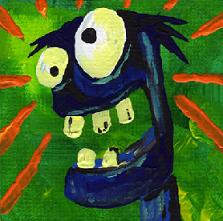

Generally, assists are awarded to the team-mate who provided the last 'clean pass' to a goalscorer. A clean pass is defined as a pass, cross or shot that goes directly to the goalscorer without the intervention of another player.
If the last touch is by an opposing defender (accidental or otherwise) and significantly alters the speed or direction of the ball (excluding a goal-line clearance) then the assist is removed and no assist is credited.
Whether the player intends to interfere with the flight of the ball or not is not the defining factor in awarding assists. The assists are decided on the actual movement of the ball and how it is affected by any touch by attacking or defending players.
If the Assist panel do not believe that the defensive touch has been significant and has not had a determinable impact under any of the above criteria, then the attacking player will be given 'the benefit of the doubt' and the will be assist awarded.
He's hit the bar!
A player who has a shot which comes off the woodwork and rebounds back to the goalscorer will be deserving of an assist.
Goalkeeping parries
If a goalkeeper parries a shot or drops a shot/cross and a goal is then scored then the person making the original shot or cross is awarded an assist. There is no assist given if the goalkeeper intentionally punches or kicks (not including a save with his feet) the ball away, the difference being that he is deemed to be in control of his actions and, no matter how pathetic the attempt, has cleared the ball away.
If a defender makes a goal-line clearance from behind the goalkeeper and it is then turned in, an assist is awarded in the same way that it is awarded for a goalkeeping parry. This only happens with goal-line clearances and when the defender is closer to the goal-line than the goalkeeper. It does not apply to shots blocked in front of the goalkeeper.
When a penalty is awarded, a player fouled earns an assist if the penalty is subsequently converted.
If a goalkeeper parries a penalty and the penalty taker scores from the rebound then the assist remains as above. If a different player converts the rebound then the penalty taker gets the assist.
Free-kicks
There is no assist given to a player earning a direct free kick if a goal arises directly from it.
If the defensive interference occurs after the goalscorer has already received the ball from a team-mate (after a 'clean' pass) then the assist will stand, as the assist is given for the final pass to the goalscorer. For example, if Michael Carrick feeds the ball to Wayne Rooney on the edge of the box and Rooney shoots, but his shot hits a defender rebounding straight back to him, then on the second attempt he scores, Carrick will still be awarded an assist, as the goalscorer (in this case Rooney) had already received the ball before the deflection occurred.
If the last touch before the goalscorer receives the ball is from his own team mate but does not significantly alter the speed or direction of the ball then two (or more - in the event of a flick-on of a flick-on) separate assists are given. One to the person providing the ball and one to the attacker providing the flick on. These typically occur as a result of near post corners, long throw-ins and goal-kicks.
Assists are awarded by virtue of a decision from the highly experienced Fantasy League Assists Committee. The decisions of the panel are in line with the framework laid out above in order to maintain consistent adjudication. However, if you still have a query about an assist please send us an email using the Contact Us page. Decisions made by Fantasy League are final.









































0 yorum:
Yorum Gönder